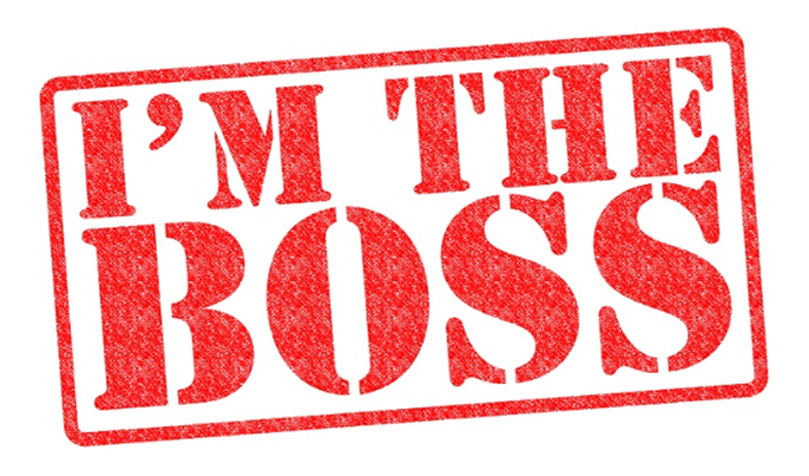Written by Sean McPheat | 

If you still view gatekeepers as annoying, low-level, annoying pawns whose mission in life is to do nothing but waste your time, cost you money and make your life miserable, then I have news for you.
The fact is that today’s modern gatekeeper is an educated, highly trained, sophisticated and sales savvy professional, who often has power and authority.
Misunderstanding, and worst yet, underestimating these modern-day guardians of the gold will cost you much more than the tough screens you face will.
A gatekeeper is anyone whose job it is to “screen” your call and stop you from talking to a particular person which is normally some kind of decision maker.
We all understand the importance of talking to “The Decision Maker” because if you talk to someone who is not qualified then you’re wasting your time. If you’re in B2B sales then you have come across gatekeepers on a regular basis and the various tactics they use on you.
If you set appointments over the phone for a living or if cold calling is a big part of your role then learning to get past these gatekeepers is a mission-critical objective in your sales career.
Understand that gatekeepers are important and powerful and play a pivotal role in business. Do not underestimate them, ever.
In the past, the gatekeeper may have been viewed as someone whose job it was to simply answer the telephone or work on reception.
However, today most of them are at least college educated skilled professionals and most have worked with the company for a long time and held other positions. Many gatekeepers began their careers in customer service or making outgoing telephone cold calls themselves.
In addition, the modern gatekeeper has often dealt with so many salespeople, that they have become familiar with and can see right through all the tricks and traps that they use to try and get past them.
Technically, they have more cold calling experience than the salespeople who call them and can receive dozens of calls each week for the decision makers that they protect.

Understand that sometimes, the gatekeeper you are speaking to on your initial cold call, could be the first-level decision maker in the sales process. When considering a large purchase, often a busy decision maker will assign the beginning legwork to a member of their team who is often the gatekeeper.
The gatekeeper’s job is to narrow down the list of potential suppliers by gathering information, investigating the company’s history, and evaluating the company’s sales practices and such. Even if the gatekeeper has no direct authority, a negative or positive report from them to the decision maker can make or break the sale.
Therefore, although the main decision maker may decide if they will do business with you or not; often the gatekeeper that decides if you can even get to that point.
Modern business understands that image is everything and that anyone can be a potential customer. Therefore, businesses today try to avoid alienating or dismissing anyone. Today’s gatekeepers act as PR people protecting the image of their decision makers and company.
Years ago, the salesperson would face a harsh, direct, even a rude wall of resistance when trying to reach the decision maker. Today’s gatekeepers however, erect a subtle, often invisible barrier that is far more deadly. The most sophisticated screen does not appear to be a screen at all. In fact, a skilled gatekeeper can conceal a screen so well that the salesperson believes they are trying to help them but in reality, they are not.
In short, do not underestimate or take for granted today’s gatekeeper. Understand them. Respect them.

It’s a bit like cracking a safe. You need the code. There are two elements to getting past a gatekeeper. Firstly, you need to understand the different types of screens that a gatekeeper will use on you and secondly, once you know, you will need to use the right technique to get past that screen.
Also, realise that while some gatekeeper screens may frustrate and anger you, the best screens are invisible.
A high-level gatekeeper’s screen is so sophisticated that most salespeople never realise it is there, usually attributing their failure to reach the decision maker to bad timing or misfortune and many gatekeepers in large corporations even have gatekeepers of their own.
You may have to go through one or two screens just to get to the main gatekeeper.
There’s a vital clue in recognising a gatekeeper screen – watch for the timing of their questions. If you listen carefully, you can often tell if they are screening you or not by the way they ask questions.
Example #1
Salesperson:
“Is Jenny Smith available?”
GK:
“No, she’s not in at the moment. Who is calling please?”
Salesperson:
“It’s Jo Brown from XYZ industries”
GK:
“I’m sorry, Jo, Jenny is out, can I take a message?”
Example #2
Salesperson:
“Is Jenny Smith available?”
GK:
“Who is calling please?”
Salesperson:
“It’s Jo Brown from XYZ industries”
GK:
“I’m sorry Jo, Jenny is out, can I take a message?”
Did you notice the difference?
Note that in the first example the gatekeeper answered the question as to the whereabouts of the decision maker before asking who was calling.
In the second example however, the gatekeeper first asks the salesperson to identify herself, before telling her anything.
It is very likely that number two is a screen.
The must first immediately identify the type of screen you are facing within the opening of your phone call. The reason it is so important to be able to recognise a screen is that getting past them requires the exact opposite technique.
There are two types of screen:
There’s the Investigative Screen and the Blind Screen.
The investigative screen is the screen in which the gatekeeper investigates and asks you a lot of questions. With a blind screen, the gatekeeper wants to stop anyone from getting through without asking any questions. If they do not recognise your name, that’s it, you’re done.
Let’s look at both in a little more detail.

With the investigative screen, the gatekeeper’s primary asset is time, and they will usually ask you lots of questions. They will usually have a pleasant personality and will often seem to be a very nice, innocent person who will often engage you in small talk. The key to getting through is that you need to force them to make a decision quickly without having time to think or ask the usual questions.
You need to come across as a VIP who does not have a lot of time.
You sound like a very important person. Could you be the big boss?
Could you be a very important customer?
This gatekeeper must either connect you to the decision maker or risk offending someone who might be a VIP.
The blind screen is just the opposite.
This gatekeeper has no time and does not want to ask you any questions. They just want to get you off the telephone because you are not on a preferred list of callers.
With the blind screen you want to be someone who talks extremely slow; someone who must think for a few seconds before each sentence. The gatekeeper is expecting the high-level salesperson who is smooth, polished, and perfect.
So, you do not want to be smooth, polished and perfect. You need to be opposite of this. This gatekeeper has no time, so you want to take up their time.
Once again, you force them to make a quick decision.
You don’t sound like a salesperson; in fact, you sound harmless. So, they must let you take up their time or put you through. And since they feel that you are harmless, they will put you through.
To get past the gatekeeper and their screens you need to do the opposite of what the gatekeeper expects and is trained for.
If the gatekeeper is looking to stop the fast-talking smooth salesperson, then you want to be a slow talking, confused person.
On the other hand, if the gatekeeper wants to talk and ask questions, be a fast-talking person who has no time to talk and answer questions.
Force the gatekeeper to make a quick decision and they will connect you rather than risk making a big mistake.
Here are some useful Telesales Training articles and tips:
• Common sales mistakes to avoid
• How to leave voicemails that’s get returned
• How to response to not interested cold call objection
As an award winning Sales Training Provider in the UK, we offer a wider range of Sales Courses that can help you.
Happy Selling!
Sean

Sean McPheat
Managing Director
MTD Sales Training
Updated on: 16 October, 2017
Related Articles

Search For More
